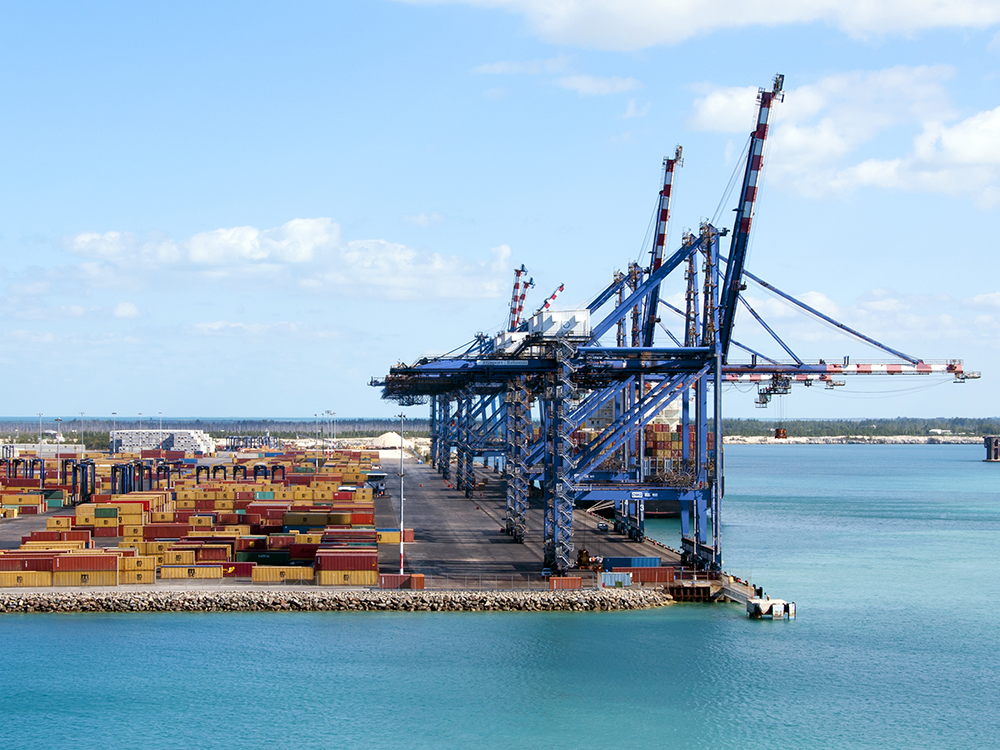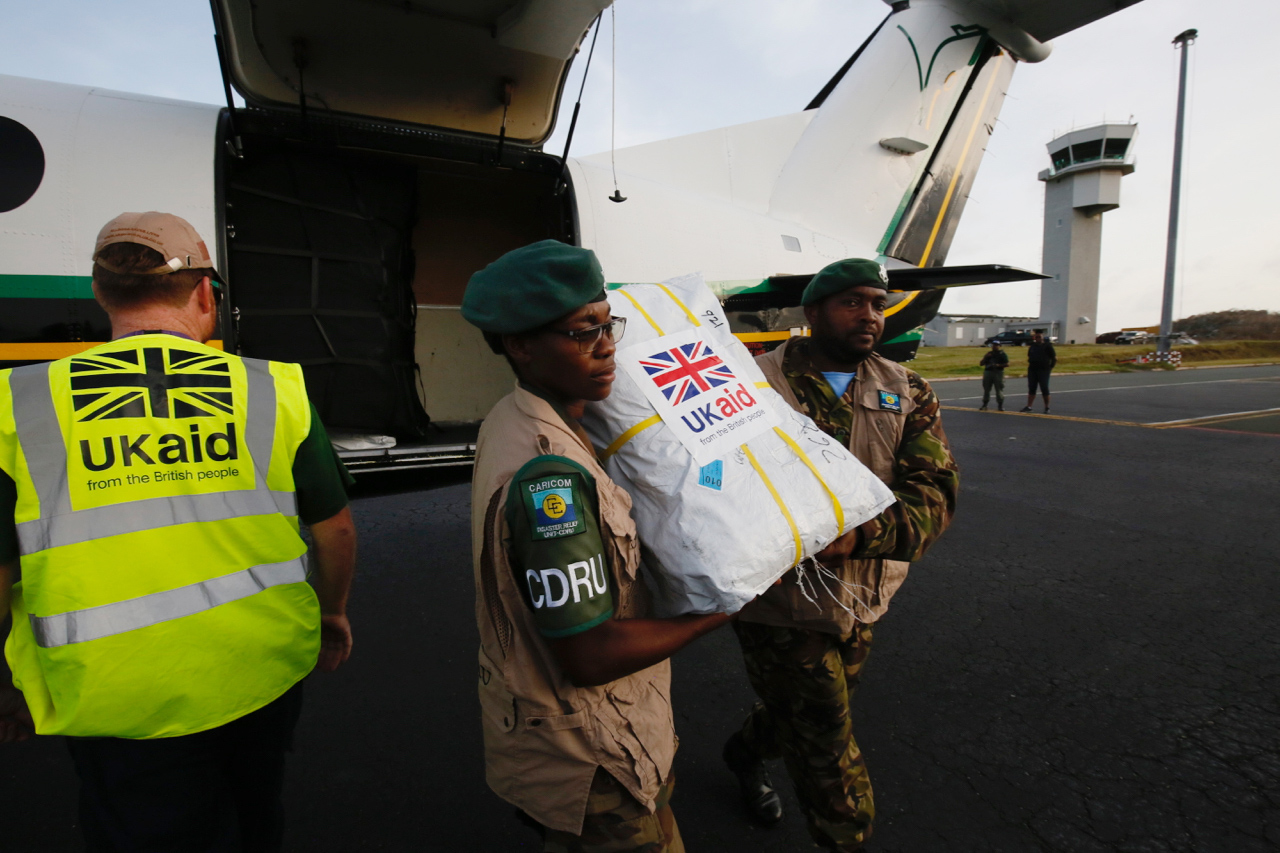Recommended
This blog post was written by Hannah Timmis. Many thanks to Mikaela Gavas and Owen Barder for their helpful suggestions.
In a customs union with the EU, the UK could pursue reforms in services liberalisation, Aid for Trade, investment promotion, labour standards and bilateral trade agreements, while maintaining EU tariffs on goods imports. This may be its best trade-for-development strategy after Brexit.
A post-Brexit Customs Union: Myths and Misconceptions
It seems increasingly likely that the UK will enter a customs union with the EU after Brexit. The withdrawal agreement’s now infamous Irish backstop provides for a “single customs territory” between the UK and the EU pending an alternative arrangement to maintain an open border in Ireland. Furthermore, a permanent customs union was found to be the UK Parliament’s preferred Brexit outcome in a series of indicative votes on April 1, and is also the centrepiece of Labour’s better-late-than-never Brexit plan, which re-entered the limelight following Theresa May’s decision to initiate cross-party talks.
As the likelihood has grown, various ministers have spoken out against a UK-EU customs union. In a letter to party colleagues, the Trade Secretary, Dr. Liam Fox, warned that such an arrangement would be “the worst of all worlds,” leaving the UK unable to set its own trade policies, including for developing countries:
The Conservative government has been keen… to use our new found tariff freedom, when we leave the EU, to stimulate trade with countries who currently face tariffs when they add value to their primary produce. A combination of outward direct investment and judicious tariff reduction would go a long way to securing our aim of helping countries to trade their way out of poverty. [However] if we were to remain in a customs union, we would have to apply the EU’s trade policy for developing countries, without any say.
Dr. Fox’s argument is misleading for two reasons. First, it implies that the EU has much further to go in liberalising tariffs for developing countries and that the UK could offer substantive reductions if setting its own rates. Second, it suggests that an independent and effective UK trade-for-development policy is incompatible with a customs union. In fact, neither is the case.
EU Tariffs and Developing Countries: The Facts
The EU already offers most developing countries zero or near-zero tariffs on their exports to the UK (Figure 1). The 47 least developed countries (LDCs) each receive full duty- and quota-free access to European markets under the Everything But Arms scheme. All other low- and lower-middle-income countries (LICs and LMICs) benefit from full or partial tariff reductions, either under the EU’s preferential access schemes or under a free trade agreement. As a result, over three-quarters of them currently pay a trade-weighted average rate of less than 1.5 percent in the UK. Of the remaining six countries that incur higher duties, two are Central American states, whose key export to Britain, sugar, was excluded from full liberalisation under the region’s Association Agreement with the EU. The other four are covered by the Standard GSP scheme, which retains positive preferential tariffs on one-third of lines for less economically vulnerable LMICs, such as India and Indonesia. Upper-middle-income countries (UMICs) are not eligible for the EU’s preferential schemes, but three-quarters of them have concluded regional trade deals that obtain duty concessions to varying extents. Only 13 UMICs (e.g. the Maldives, Thailand, and Brazil) pay the EU’s highest “Most Favoured Nation” (MFN) tariff rates in all categories.
Outside a customs union, therefore, the UK’s main opportunities to offer duty reductions would be limited to richer developing countries. Moreover, the impact of such liberalisation on poverty alleviation is ambiguous. On the one hand, it would lead to an increase of British imports from developing countries that are the world’s most competitive producers. On the other, it would reduce the competitive advantage in UK markets that lower tariffs afford the least developed, smallest, and most vulnerable economies.
For example, if the UK government were to implement its proposed “no-deal” tariff schedule and liberalise 72% of UK MFN lines, developing countries that incur the highest duty rates on their exports to Britain would benefit. However, those that currently pay low or no tariffs – which includes all the least developed countries - would see the value of these preferences halved, according to analysis by the Overseas Development Institute (ODI). Dr. Fox appears to overlook this trade-off when making the case for further liberalisation after Brexit.
Figure 1: Average tariff rate paid by developing countries in the UK
Options for the UK’s Trade-for-Development Policy after Brexit
If the UK entered into a customs union with the EU, it would be required to apply the EU’s external tariffs to goods imports. However, this would not preclude the UK from operating entirely independent trade policies in other key respects, such as services liberalisation, Aid for Trade, investment promotion, and labour standards. Reform in these areas may have a greater impact on development outcomes than tariff policies, which we have previously argued are rarely the binding constraint to poor countries’ trade. Indeed, many promising trade-for-development ideas proposed by CGD colleagues and others are entirely compatible with a UK-EU customs union. Some examples include:
-
Pioneering a model free trade agreement for development. Even if the UK remains in a customs union, the EU’s current and future trade agreements would cease to apply after Brexit, and the British government would need to negotiate its own, separate deals. While it would be unable to offer tariff concessions divergent from the EU’s, it could design and pioneer a set of “model provisions” in other areas that explicitly promote sustainable development. For example, Emily Jones has argued that there are “opportunities for significant re-thinking” on current approaches to services, e-commerce, labour and environmental standards, tax cooperation, and investment provisions in trade deals with developing countries. Christophe Bellmann corroborates this view and recommends that the UK conduct a systematic review of lessons learned from previous trade agreements, including promoting dialogue with policymakers and civil society in both developed and developing countries.
-
Liberalising UK services markets through enhanced labour mobility. A customs union does not cover trade in services. There is a growing empirical literature on the importance of services and services trade policy for developing country export performance (see ODI, 2016). In particular, cross-border services supplied via the temporary movement of people from developing to developed countries can provide economic gains that far outweigh those from goods trade liberalisation. Currently, the UK accepts very few migrants from the poorest countries, whether to provide services or otherwise. Assuming that it leaves the single market, Brexit may provide an ideal opportunity to further liberalise this mode of services trade, since the ending of free movement from Europe is expected to leave significant supply shortages in sectors such as nursing and IT. One promising model for doing so is Michael Clemens’ Global Skill Partnerships model, whereby the UK would invest in training foreign workers in developing countries to provide temporary services in British markets. Michael Anderson and others have demonstrated how this model could be implemented in the UK’s health sector to address critical nursing shortages exacerbated by Brexit, while simultaneously improving the incomes and skills of health workers in poor countries.
-
Improving the effectiveness of UK Aid for Trade with cash-on-delivery. Policy choices within developing countries matter more for their export performance than UK tariffs and regulations. Aid for Trade is the UK’s main lever for influencing these choices and is largely independent of its relationship with the EU. The government has said that it intends to use aid to boost developing country trade, including through increased cooperation between DFID and DIT. A key challenge will be ensuring that this aid is spent effectively, given that evidence on the impact of Aid for Trade is mixed. To this end, Lee Crawfurd and others have proposed that the UK introduce a cash-on-delivery modality for Aid for Trade programming. Rather than paying for specific programme activities (e.g. technical assistance for improving a certain process), the UK would disburse aid upon the achievement of results (e.g. reduction in the cost of importing and exporting). This would allow for more flexibility and experimentation during programme design and would reduce the possibility that aid funds go to waste.
-
Improving the effectiveness of UK investment by increasing transparency. In a previous post, we argued that the key challenge faced by developing country exporters is converting market access into meaningful market presence. This requires substantial, targeted investment in the supply-side barriers that undermine poor economies’ competitiveness in global markets, including infrastructure, productive capacity, and trade facilitation. The Prime Minister has subsequently announced a £4 billion programme of UK investment in African countries, of which £3.5 billion will be channelled through the CDC Group, the UK’s development finance institution. She expects this programme to leverage an additional £4 billion in private sector financing. While the Prime Minister’s intention is welcome, it is concerning that the Independent Commission for Aid Impact’s recent review of CDC found that the institution did not do enough to monitor and maximise the impact of its programmes. To ensure that UK aid investment is effective, colleagues Vijaya Ramachandran and Arthur Baker have proposed four steps to improve CDC transparency, including publishing detailed data on its portfolio and conducting rigorous evaluations. This would help build the evidence-base on non-traditional forms of development finance, including its impact on trade outcomes
-
Designing a gender-responsive trade policy that includes strict corporate accountability. The UK government has committed to pursuing a “gender-responsive” trade policy after Brexit. This commendable ambition is compatible with a customs union. While much of the discussion on trade and gender has focussed on increasing female participation in trade through deeper liberalisation, feminist commentators like Action Aid point out that women already comprise approximately 80% of workforce in various global value chains (GVCs), since their cheap labour offers a comparative advantage. An effective gender-responsive trade policy, therefore, should prioritise improving the quality, rather than the quantity, of female employment by improving wages, working conditions, and protections in GVCs. One option, proposed by Alice Evans, would be to make companies liable for labour standards in their supply chains. For example, the French government has introduced legislation that obliges large corporations to undertake human rights and environmental due diligence, or else be liable. By incentivising more scrupulous sourcing, Evans suggests that strict corporate accountability would ensure that female labour repression “ceases to an economically competitive strategy.”
A UK-EU customs union would commit the UK to applying EU external tariffs, which as set out above are already liberal for most developing countries’ trade with the UK. And it would allow the UK to focus its reform efforts on non-tariff policies with potentially greater impact on trade and development outcomes. In short, from a development perspective, a UK-EU customs union may, in fact, be the best of all worlds after Brexit.
Disclaimer
CGD blog posts reflect the views of the authors, drawing on prior research and experience in their areas of expertise. CGD is a nonpartisan, independent organization and does not take institutional positions.







